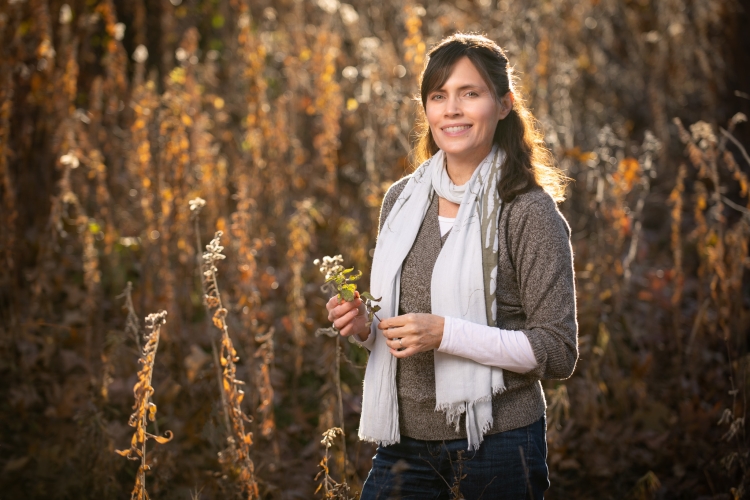Science Matters Partnership With the Linda Hall Library Turns 5

Since its inception five years ago, thousands have attended Science Matters, a monthly brown bag lunch series co-hosted by the Kansas City Public Library and the Linda Hall Library. Guest speakers have covered animal behavior, city planning, water treatment, baseball analytics, and a wide variety of other topics that can be looked at through the lens of science, all in a local or regional context.
“Our goal,” Linda Hall’s vice president for public programs Eric Ward says, “is to provide a forum for the curious public to learn more about what’s happening in their communities. And the informal nature of the events creates engaging, interactive conversations.”
September’s talk aims to help that curious public make sense of what “prairie” means, and how they can be good stewards of what’s left.
Carol Davit, the executive director of the Missouri Prairie Foundation, presents “Why Prairie Matters: New Relevancies of a Vanishing Landscape” on September 18 at the Central Library.
The idea of prairie isn’t exactly abstract but with so little remaining, it’s close. Unplowed prairie is rarer than rainforest – less than one-half of 1% is left in Missouri, but that’s more than some states have.
Since 1997, Davit has worked at the Missouri Prairie Foundation in one capacity or another. She seems to know that one-half of 1% is hard to imagine and tries to make the issue relatable and more concrete.
If it disappears completely, she says, “Many plant and animal species that depend on unplowed prairie will no longer exist in our state.”
She suggests thinking of life on Earth as a delicate house – one that needs to be as strong as possible to withstand stressors.
“If you think about each beam, each piece of wood that’s holding up the walls, as aspects of fortifying that house,” she says. “If you think of those parts of a house being a habitat or a plant or an animal, the more that you pull away, the house is going to come tumbling down.”
Davit says that people seem to think in absolutes, tending to wait until something is ruined to try to fix it. But that’s not how nature works.
“All I can say is, the more we do now to protect native biodiversity, the better our chances of survival will be down the road because we all depend – life on Earth depends – on the sum of all biological diversity on Earth,” Davit explains.
But, again, that’s another hard-to-imagine concept.
So, she roots her talks in practical information and advice for her listeners: Landscape with native plants to attract pollinators, help absorb carbon, filter stormwater, or even provide year-round work for landscapers.
If, Davit says, more landscaping incorporated appropriate, diverse, native plants, that would mean cleaner stormwater and cleaner streams and spending less on engineered infrastructure to do those kinds of jobs.
She says of the talk, “I would hope it's something that will enrich people's lives to know that these original prairie remnants exist, and they are available for people to visit and enjoy. It's a way for them to discover more of their natural heritage that belongs to all of us in Missouri.”
Programs take place every third Wednesday of the month. RSVP here for Davit’s presentation. For information about upcoming speakers and other Linda Hall events, sign up for their newsletter here.
- October 16: The KC Wheel – Karyn Wilder, ICON Experiences
- November 13: Food preservation – Tim Touhy, KC Canning
- December 18: Winter gardening, cold starvation of winter plants
- January 15: Winter in the Midwest – KSHB and KMCI meteorologist Wes Peery
- February 19: The Great Backyard Bird Count – National Audubon Society